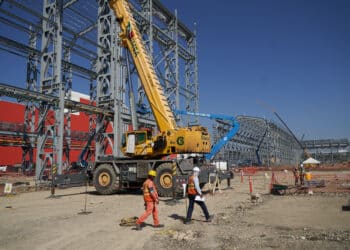Some equipment finance execs urge adoption of standards
Documentation, reporting standards meant to streamline data analysis, reduce fraud
Some equipment finance executives are pushing for industry standards to improve operations and reduce government intervention.
Adoption of industry standards for documentation and reporting remains a controversial issue, with some executives arguing that set standards dilute the uniqueness of equipment finance, while others believe that the increase in government regulations and the need for increased efficiency and security increases the need for standards, Andrew Cotter, executive vice president and chief information officer at Somerset Capital, said Tuesday during a panel at the Equipment Leasing and Finance Association’s Convention in Phoenix.
Standards adoption “is important to transform the industry,” he said. Standards aren’t “to dilute our uniqueness as a platform in the way [companies go] to market but allow us to do business to operate more efficiently and more securely in a timely fashion.”
Establishing standards will help the equipment finance industry navigate an uptick in government regulation, Roman Gajda, director of financial technology solutions at Mitsubishi HC Capital America, said during the panel.
“Before an outside force comes in to regulate, how do we get better ourselves?” he said. “You already have Section 1071 that is imposed on us, and we have disclosure rules that are imposed on us. We are capable of disrupting our own industry and [making it better].”
Section 1071 of the Dodd-Frank Act will require equipment finance lenders to collect and report data on small business loan applications, including demographic information, to the Consumer Financial Protection Bureau (CFPB), starting with lenders who facilitate for than 2,500 covered transactions beginning data collection on Oct. 1, 2024, according to CFPB.
Following other industries’ leads

Other, larger industries related to equipment finance, such as commercial lending and mortgages, have undergone standardization, Denis Stypulkoski, founder and principal of business consulting firm Reimagine Advisors, said during the panel.
“This industry is ripe for transformation,” he said. “It’s happening in commercial lending and mortgages, so at what point do the industries that are tens of trillions of dollars have their problem solved, and all the brain trust moves down to the $1 trillion industry? It’s sooner than later.”
The idea of the equipment finance industry standardizing derives, in part, from a similar move in the insurance industry, which also adopted standards to simplify documentation procedures, Jeff Bilbrey, chief executive of equipment software company LeasePath, said during the panel.
Adoption of standards can also help improve equipment finance operations such as capital market activity, data sharing and fraud prevention, Reimagine Advisors’ Stypulkoski said.









